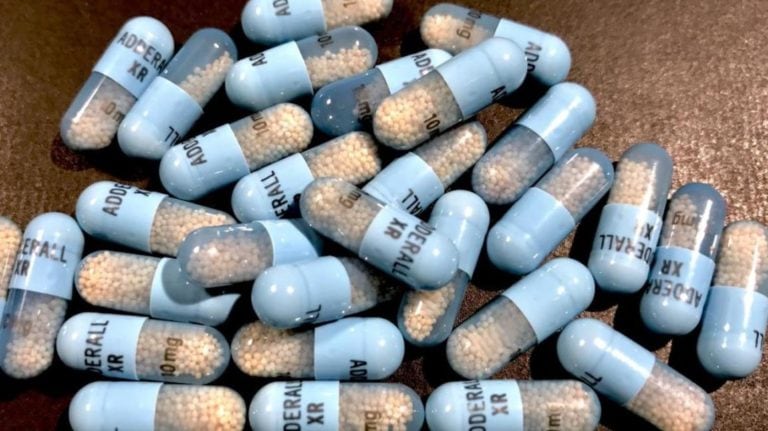9 Signs That Someone Needs To Go To Methamphetamine Rehab
Methamphetamine is an extremely addictive psychostimulant drug. Tolerance to meth can be developed quickly, leading a meth user to depend on more and more of the substance to feel its effects. As tolerance increases and larger quantities of the drug are taken, physical dependence and addiction develop.
Meth produces an intense but short-lived high that can quickly hook users into “binge and crash” cycles, as they continue to take more doses of drug to reproduce the desired effects. Some users will do this for as long as they can—for several, or until their supply runs out. These are often referred to as “runs,” and are marked by the tendency of meth users to not eat or sleep for prolonged periods of time while using. This is a dangerous scenario that puts users at high risk for health problems, psychotic episodes, and fatal overdose.
9 Signs That Someone Needs To Go To Methamphetamine Rehab
Methamphetamine is an illicit substance, so any amount of its use is considered drug abuse. If you or a loved one are using methamphetamine, here are 9 signs that methamphetamine rehab is needed.
- Obsessive thinking about meth
One of the most common signs that a person is addicted to meth and needs to seek help is obsessive thinking about meth. This includes constantly thinking about the next time they will use meth, how they will acquire it, when and where they will use it, and so on. This can bring up feelings of fear and anxiety if a person doesn’t know when or where they will next be able to use it.
- Intense cravings or withdrawal symptoms
Cravings and withdrawal symptoms can signal that the mind and body have become addicted and are dependent on the drug. The intensity of cravings and withdrawal symptoms will depend on how much and how frequently meth is used by an individual.
- Unsuccessful attempts to quit using
If you or a loved one have attempted to quit using meth and have been unable to stop by oneself, this is a big indicator to seek help. Drug addiction is all-consuming and extremely difficult to manage on one’s own. Continuing to use drugs even when you want to stop is a sure sign of addiction.
- Spending excessive amounts of money on meth
Spending large amounts of money on meth is an indicator of addiction. The amount of money spent on meth doesn’t necessarily have to be thousands of dollars— another way to look at it is asking oneself, “Am I using money that should go toward groceries, bills, etc., on drugs?” They can also reflect on whether their drug habit is negatively impacting them or their family’s financial stability.
- Loss of motivation and interest in hobbies
In active addiction, many individuals begin to lose interest in things that they used to enjoy doing. They become more and more focused only on their drug of choice, and spend a larger and larger amount of their time thinking about when and where they will get it, using the drug, or recovering from use of the drug.
- Lying or defensiveness about meth use habits
When defensiveness around meth use, or hiding and lying about meth use, begins to crop up, this is a sign that someone may need to go to methamphetamine rehab. This may include lying or being defensive about what they have been doing, when they were actually using meth, or lying about where money has gone that was spent on meth.
- Neglecting responsibilities, such as work and family
Because methamphetamine addiction can take over an individual’s entire life, it is common for this addiction to significantly impact work and family duties and responsibilities. Individuals addicted to meth may choose to use meth over spending time with their family or showing up to work, and many people in active addiction lose jobs and have strained family relationships.
- Neglecting appearance and wellbeing
When someone has been regularly using methamphetamine, it often becomes apparent through their physical appearance. As meth addiction develops, users often begin to neglect grooming such as bathing, shaving, laundry, or brushing their teeth. They may become malnourished and experience rapid weight loss. Specifically for meth, they may develop skin sores or experience extreme dental problems. These are all signs that someone needs to go to methamphetamine rehab or seek other addiction help.
- The Three C’s Of Addiction
To summarize some of what has already been written on signs that someone needs to go to methamphetamine rehab, the three C’s of addiction are a good way to check in on an individual who may be struggling with addiction. The three C’s include:
- Control: Loss of control over the frequency or amount of meth consumed
- Craving: Craving and compulsive use of meth
- Consequences: Continued use in the face of adverse consequences to meth use
Methamphetamine Rehab at Oasis Recovery
If you or someone you loved has developed an addiction or dependency to meth, we encourage you to reach out to the professionals at Oasis Recovery to learn more about our personalized treatment programs and mental health services. Recovery is always possible. Our experts work with you to design a treatment plan that fits your needs. Common treatment programs include:
- Intensive Outpatient Programs (IOP)
- Partial Hospitalization Programs (PHP)
- Aftercare Services
Contact us today for more information about how our programs and services can help you get your life back on track.











